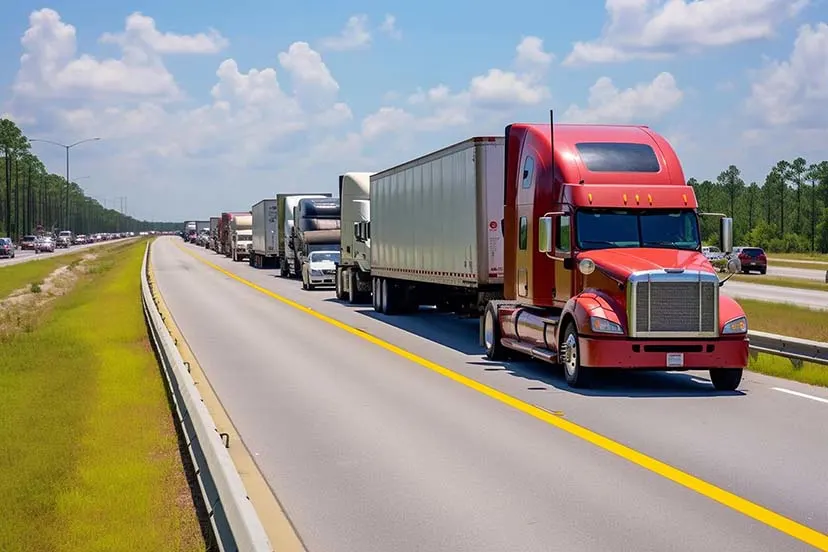Use Case Study: Scalable Hydrogen Refueling for Long Haul, Heavy Duty Highway Infrastructure
Building the hydrogen energy infrastructure is critical for the longevity of domestic and international trade, shipping, and commerce.
Project Details
This project explores the implementation of the Scalable Hydrogen Energy Platform (SHEP) and the Compact Hydrogen Refueling Station (CHRS) designed to support the refueling of long haul and heavy-duty trucks. The developer aims to implement a hydrogen facility that produces, compresses, stores, and dispenses fuel-cell grade hydrogen.
This project explores the implementation of the Scalable Hydrogen Energy Platform (SHEP) and the Compact Hydrogen Refueling Station (CHRS) designed to support the refueling of long haul and heavy-duty trucks. The developer aims to implement a hydrogen facility that produces, compresses, stores, and dispenses fuel-cell grade hydrogen.



Production

Refueling

Storage
The proposed facility is strategically located near major trade and transport highways to ensure accessibility and convenience for truck operators.
Please note refueling facilities using solar and wind energy will require additional acreage.

Key Benefits

Diverse Revenue Streams
Generate additional revenue through the sale of hydrogen and related infrastructure for transportation, commercial offtake, industrial processes, and more.

Innovation Leadership and Job Creation
Attract partnerships, funding, and further investments, driving innovation, job creation, and establishing the area as a hub for clean energy advancement.

Energy Resilience
Diversify the national energy supply by producing hydrogen, and reduce dependence on imported fuel.

Incentives and Subsidies
Increase profitability with hydrogen-focused government incentives such as the Clean Hydrogen Production Tax Credit 45V in the United States.
Refueling Capacity
At 500 kg of hydrogen per day, SHEP can refuel:
Technology and Features
Electricity Source
Utilizes electricity from the grid or renewable sources to power the facility 24 hours a day
Electrolyzer Technology
Employs state-of-the-art alkaline electrolyzer stacks to efficiently convert water into hydrogen.
Hydrogen Refueling
Implements dispensing technology to refuel heavy duty hydrogen-powered vehicles to support vital industries such as commerce and agriculture.
Energy Compression & Storage
Integrates advanced, high-capacity systems to compress, store, and maintain a steady supply of energy.
Key Milestones
The planning and design phase involves outlining the facility's layout, including electrolyzers, storage units, and refueling stations.
Results and Impact
Considerations
Maintenance and Operation
Maintain the efficiency and operation of system components including the electrolyzer, compression, and storage systems.
Financial Considerations
Evaluate the economic feasibility and funding for the project.
Regulations and Certifications
Navigate regulations and obtain necessary approvals for hydrogen production and distribution.
Future Outlook
SHEP has the ability to scale up and integrate additional technologies that increase hydrogen production capacity to meet rising demand. The growing market demand for hydrogen in many sectors will drive further development and investment in the project.